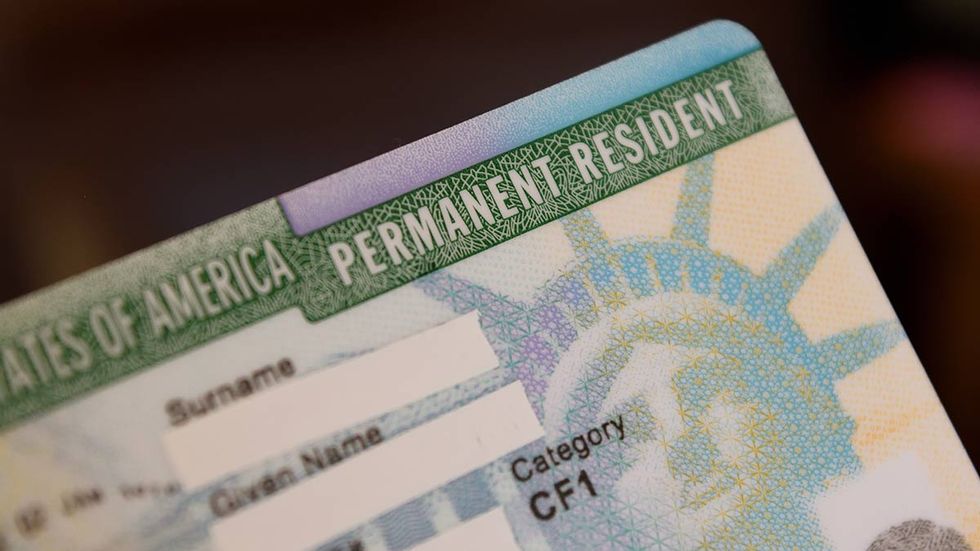
© 2024 Blaze Media LLC. All rights reserved.
Irrespective of how the Ninth Circuit rules in the case against President Trump’s immigration order, our sovereignty is gone. Overnight, our most sacred values, laws, and traditions related to national sovereignty have been stolen by the courts. In the ultimate display of what Justice Scalia dubbed “social transformation without representation,” the unelected courts are creating an affirmative right to immigrate, particularly for those who believe in Sharia law.
Even the “better judges” and “conservative” commentators — and even the Trump DOJ lawyers — have essentially conceded the Left’s default position that all 7.2 billion people have the potential right to immigrate based on 1st and 14th Amendment claims. The one check on that “right” is whether the government can demonstrate with tangible evidence (other than pure common sense) that the person or group of people pose a threat to the country. The only disagreement seems to be over the nature and severity of the specific threat and whether that justifies the president’s order. This prevailing thought in the legal community cannot be further divorced from our true default history and laws on sovereignty.
We have already explained the Constitutional, philosophical, historical, and case law arguments of why Congress has full authority to allow in anyone or exclude anyone. Likewise, Congress can set any criteria for their entry and revoke that status at will until the immigrant becomes a citizen. That is beyond dispute, yet the lawless courts have thrown out settled law and have created discrimination limitations in immigration.
Now let’s move onto Trump’s authority as president to use his delegated authority to shut down any form of immigration. Here is the case I would have given that seemed to be lost on the DOJ attorney.
“Plenary power over immigration” means … plenary power over immigration
Earlier this week, I noted that five of the seven countries are already covered by existing law on the books (8 U.S. Code § 1735) as it relates to shutting off non-immigrant visas. In addition, 8 U.S.C. § 1184(a)(1) allows the president to terminate non-immigrant visas from any country “for such time and under such conditions as the Attorney General may by regulations prescribe.”
Also, the ability to shut down the refugee program was specifically delegated to the president under 8 U.S.C. §1157(a)(2) — the same authority Obama used to ratchet up refugee intake. However, the glue that binds Trump’s authority to shut off all or any category of immigrant and non-immigrant visas comes from INA 212(f), which is at-will plenary authority expressed in the strongest terms:
Whenever the President finds that the entry of any aliens or of any class of aliens into the United States would be detrimental to the interests of the United States, he may by proclamation, and for such period as he shall deem necessary, suspend the entry of all aliens or any class of aliens as immigrants or nonimmigrants, or impose on the entry of aliens any restrictions he may deem to be appropriate.
There are two important observations to be made here:
1. The criteria for exclusion is not based on “national security concerns” or “terrorism.” It’s any admission that, in the determination of the president, would be “detrimental to the interests of the United States.” That includes public charge, health concerns, values, attitude, etc. Thus, a group of individuals who believe in Sharia law would be covered as well.
2. This is not the type of provision that a court can demand evidence that the condition of “detrimental to interests” was met. The delegation of authority was designed as plenary power under the broad auspices of “detrimental interests.” The courts have absolutely no authority to second-guess the president’s determination. That is up to Congress and the electorate. As a recent CRS report observes from the House Report on the 1952 immigration bill that granted this authority: “The bill vests in the President the authority to suspend the entry of all aliens if he finds that their entry would be detrimental to the interests of the United States, for such period as he shall deem necessary.” [H.R.RPT.1365, 82d Cong.,2d Sess., at 53 (Feb. 14, 1952)]
It is for this reason that there has been such a dearth of litigation over 212(f) authority, even though it has been invoked 43 times since 1981, 19 of which were by President Obama. The one major Supreme Court case covering 212(f) was Sale v. Haitian Centers Council, Inc. (1993), which dealt with a policy established by Bush 41 and Clinton to apprehend Hattians travelling by sea to our shores. The policy was designed to return these Haitians to their home country before they could land in the United States and apply for asylum. In a clear 8-1 decision, the court fully upheld the act and made it clear there were no limitations on 212(f) authority.
Similarly, the few lower court decisions on this matter clearly affirmed long standing settled law. Any alien who enters the country without lawful status or against the president’s 212(f) proclamation is considered to be outside our borders and has no right to apply the due process of the deportation procedures to his predicament.
The president’s foreign affairs powers
In one of the few cases on 212(f) (Encuentro del Canto Popular v. Christopher, 1996), a district judge in California made it clear that not only does the president have the delegated authority from the legislature to cut off visas, but he also has his own powers to conduct foreign affairs:
The exclusion of aliens is a fundamental act of sovereignty. The right to do so stems not alone from legislative power but is inherent in the executive power to control the foreign affairs of the nation. * * * When Congress prescribes a procedure concerning the admissibility of aliens, it is not dealing alone with a legislative power. It is implementing an inherent executive power." [930 F. Supp. 1360, 1365 (N.D. Cal. 1996)]
If a president can’t put a temporary halt on a refugee program during the most ubiquitous phase of the war on terror or suspend visas from terror states or terror havens with absolutely no vetting data to speak of, then a president has no power over foreign affairs whatsoever without asking permission of a court.
President Trump’s power of admissions process
In addition to INA 212(f), there is another section — INA 215(a)(1) — that grants the president an almost equal level of authority to regulate entry of all aliens, which includes both immigrant and non-immigrant visas:
Unless otherwise ordered by the President, it shall be unlawful-
(1) for any alien to depart from or enter or attempt to depart from or enter the United States except under such reasonable rules, regulations, and orders, and subject to such limitations and exceptions as the President may prescribe;
If it is not “reasonable” to implement a temporary moratorium so we can come up with vetting from places that are saturated with terrorism, I’m not sure what is reasonable. According to CRS, President Carter used 215(a)(1) authority to suspend immigrant and non-immigrant visas from Iran following the Iran Hostage Crisis. With ubiquitous terror attacks on our soil and federal officials and trial judges telling us we have a major terror recruiting program — for example, in the Somali immigrant community of Minneapolis — how could a president not suspend visas from such a country? And counter to the assertion of the courts, this clearly covers legal permanent residents as well.
Webster’s dictionary defines a sovereign nation as “free from external control.” Now that courts have crowned themselves king over our sovereignty with the power to rewrite both statute and the Constitution, there is no limit to the conditions foreign nationals can place on this country.
Want to leave a tip?
We answer to you. Help keep our content free of advertisers and big tech censorship by leaving a tip today.
Want to join the conversation?
Already a subscriber?
Blaze Podcast Host
Daniel Horowitz is the host of “Conservative Review with Daniel Horowitz” and a senior editor for Blaze News.
RMConservative
Daniel Horowitz
Blaze Podcast Host
Daniel Horowitz is the host of “Conservative Review with Daniel Horowitz” and a senior editor for Blaze News. He writes on the most decisive battleground issues of our times, including the theft of American sovereignty through illegal immigration, theft of American liberty through tyranny, and theft of American law and order through criminal justice “reform.”
@RMConservative →more stories
Sign up for the Blaze newsletter
By signing up, you agree to our Privacy Policy and Terms of Use, and agree to receive content that may sometimes include advertisements. You may opt out at any time.
© 2024 Blaze Media LLC. All rights reserved.
Get the stories that matter most delivered directly to your inbox.
By signing up, you agree to our Privacy Policy and Terms of Use, and agree to receive content that may sometimes include advertisements. You may opt out at any time.



